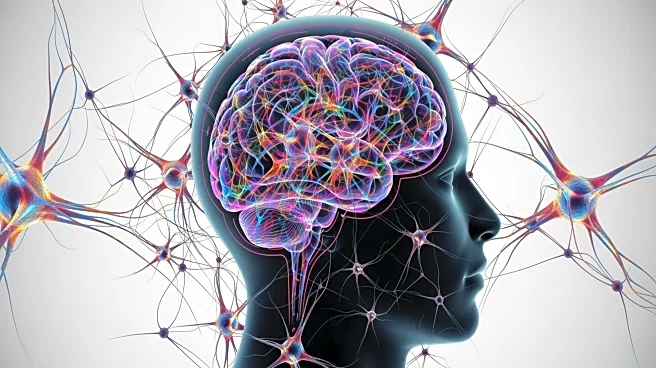What's Happening?
Researchers from Reichman University and the Weizmann Institute of Science have discovered that despite individual differences in neural wiring, human brains perceive the world in similar ways. The study involved recording live neural activity in epilepsy
patients, revealing consistent relational patterns in neural responses across individuals. This shared code allows different brains to interpret the same scene similarly, such as a dog running on the beach. The findings could refine artificial intelligence models inspired by human cognition.
Why It's Important?
Understanding the universal structure of perception has implications for both neuroscience and artificial intelligence. It highlights how the brain organizes information, which could improve AI systems by mimicking human cognitive processes. This research bridges human cognition and AI, potentially leading to more efficient and intelligent artificial networks. It also provides insights into how humans cooperate and communicate, despite individual neural differences.
What's Next?
The study opens avenues for further research into the brain's representational code, which could inspire the design of advanced AI systems. Continued exploration of the relationship between human and artificial neural networks may enhance our understanding of cognition and improve machine learning models.
Beyond the Headlines
The research underscores the complexity of human perception and the potential for AI to replicate these processes. It suggests that the brain's relational coding is central to shared perceptual experiences, offering a new perspective on cognitive science.














